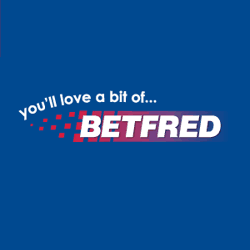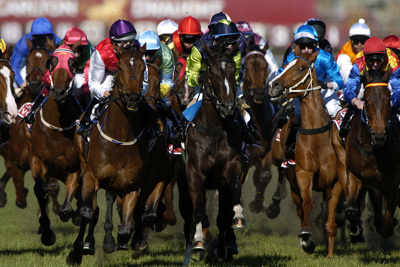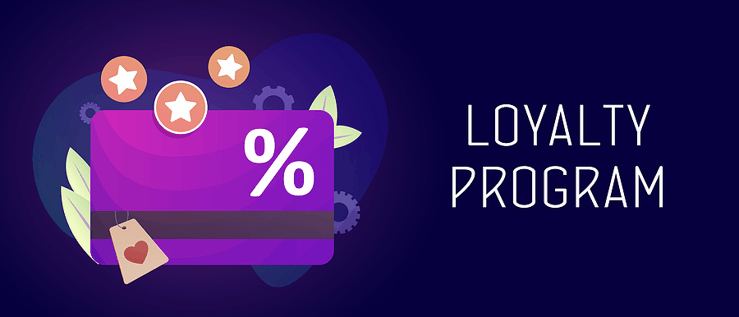 Free bets can sometimes sound too good to be true and if your mum taught you “there’s no such thing as a free lunch” or “if something looks to good to be true then it probably is…” then she may well have been wrong on this occasion!
Free bets can sometimes sound too good to be true and if your mum taught you “there’s no such thing as a free lunch” or “if something looks to good to be true then it probably is…” then she may well have been wrong on this occasion!
Free bets can be a great way to boost your bankroll at the bookies. Which begs the question, why do the bookmakers offer them? Well, like a supermarket that has loss-leaders (products they actually make a loss on) or a restaurant that has an incredibly cheap deal, free bets are designed to attract customers in an increasingly competitive marketplace.
The hope is that the free bet will get you in the door and the quality of the product – in this case the design of the site, the range of markets, the odds and the ongoing promotions – will keep you betting with them. Whether you do or not is totally up to you but enough people are evidently happy to continue betting with the various bookmakers to fund these free bets so long may they continue!
Best Free Bet Offers For New Customers












Types Of Free Bet Offer

Whilst the welcome bonus at each bookie will vary, you’ll find that most introductory free bet offers will fit into one of the following categories:
- Matched Bets – Matched bets entail a percentage match of your first bet or bets with the given bookmaker. This is normally 100% but is sometimes less, such that placing a £25 bet usually qualifies you for a £25 free bet. Some bookmakers literally match your first bet, such that if you bet £10 on Man United you actually get £20 on them, although the first form of free bet is far more commonplace.
- Bet Bundles – A bet bundle uses the same basic concept as a matched bet in that you place bets to get free ones, but here you’ll need to place multiple bets to trigger the offer. Such as five £10 real money bets for a £25 free bet. In many cases if you keep betting you’ll keep getting free bets (up to a limit), but there’s less value in these than a traditional bet offer.
- Bet & Get Free Bets – Similar in concept to a matched bet, except instead of just getting one free bet you’ll receive multiple ones. These are often in the form of Bet £5 Get £25 or Bet £10 Get £30 and offer excellent value, often dishing out free bets worth 3x, 4x or even 5x your qualifying deposit and wager.
- Deposit Bonuses – Deposit bonuses are a percentage match, usually 100% but sometimes less, occasionally more, of your first deposit with the bookmaker. So if you sign up and deposit £50 the bookmaker will usually add a further £50.
- Enhanced Odds – A new type of sign up offer that has become increasingly popular with the bookies are enhanced odds. This is where you receive odds far greater than you would normally get, often for a heavy favourite. For example, you may see odds of 6/1 for Man United to beat Bournemouth. The maximum bet for these kinds of promotion is usually fairly small (£5 or £10, or even £1 in some cases) and the winnings are either paid as cash or as free bets. Some betting sites will also offer you a free bet or bonus if your bet loses and/or additional follow up bets for your continued custom.
There is also another, less common type of promotion which is worth a mention – no deposit free bets. These are just like they sound, freebies given to you without even having to make a deposit. Most bookies tend to steer clear of this kind of offer though so they are relatively rare.
Recently, some offers have started to also include a casino portion. Particularly with higher percent match offers and the increasingly popular “Bet and Get” style promotions. Here your bet £5 get £30 offer might be made up of a mix of sporting free bets and a casino bonus or free spins (eg: £20 in free bets and a £10 casino bonus).
The Rules Of Free Bets: At a Glance

Having said that sometimes there IS such a thing as a free lunch, it’s worth noting that the bookmakers won’t buy you three courses, coffee and wine as well. All free bets have various terms and conditions attached and these are generally to avoid abuse of their generosity. The most obvious point is that you won’t just be able to withdraw your money; a free bet is exactly that, a free bet, not money for you to withdraw and spend at the local chippy.
The first main point to consider with most free bets is whether they are stake returned or stake not returned. The latter tends to be the most common type of offer and means that if you place a £25 bet that wins, the returns will exclude the £25 free bet stake. Where the stake is returned the winnings are returned along with the free bet/bonus amount, although such bets almost always have wagering requirements before your balance can be withdrawn.
You may also notice that there are defined minimum odds that your bets must be in order to qualify. This could apply to both the initial bet placed to gain the free bet as well as the free bet itself. With the exception of a small number odds boost type offers, most betting offers will come with minimum odds, so make sure you look out for them.
Other things to look out for, although these terms are far less common, are that certain sports or types of bet (particularly in-play bets) may be excluded, only accumulators may count, or only single bets count (as opposed to accumulators and each way bets).
It’s well worth noting however that none of these terms are designed to catch you out. The bookies want your business and they want you to have a good time – ripping you off is not in their interests.
Who Has the Best Free Bet?

This is a tricky question to answer as the offers change on regular basis. Extra special promotions and deals also appear for short periods of time that are aimed at people who are interested in specific events such as the start of the Premier League season or Wimbledon. These can be even more lucrative than the normal offers, but can sometimes just be the same regular offer repackaged in a way that’s been designed to appeal to a specific set of people.
For us to single out one promotion as ‘the best’ would require near constant rewrites of this section, which isn’t realistic or feasible. As a compromise, however, we have an internal ranking system that organises the list of offers (above) so that as a general rule of thumb, the best free bets appear at the top and then the value goes down the lower down the list.
Generally speaking though you want to watch out for two things. Here we’ll tell you what to watch out for, what’s good and what’s not so good:
Deposit & Bonus Amount
For almost all free bets you’ll need to make a deposit and real money bet and the size of your deposit usually dictates the size of the bonus. But the relationship between the deposit and bonus massively varies. Some betting sites offer a fixed deal – so bet £10 for a £30 free bet – whilst others offer to match you pound for pound on any amount up to a maximum.
Of these two types the first (Bet £10 Get £30) is clearly more generous, but often the deposit matches are bigger (such as 100% up to £100). If you were planning on making a larger deposit anyway, then the bigger bonus could actually work out better for you.
Good
- Bet £10 Get £30 – An excellent offer that gives you three times your deposit in free bets. We’ve even seen higher too, going up to £40 or even £60 around key points in the year.
- 100% up to £100 – Whilst it may not treble your money like the first offer, it does award you a larger bonus. At this level and above you’re very unlikely to see anything more than a 100% match, which is fine as you’re balancing the increased size of the bonus against the lower percent match.
- Money Back (As Cash) – Very different to the money back as free bets mentioned below. When the refund is in cash, these offers are excellent. You can place your bet and collect your winnings if you win, and get your money back if you lose.
Average
- Bet £25 Get £25 / 100% up to £25 – Two similar sounding offers just phrased differently. These are OK if nothing else more interesting is around but you can often find bonuses that are for the same amount but lower deposit. Meaning you can get the same bonus (or more).
- Double Odds / 100% Profit Boost – A relatively new kind of offer that has cropped up recently. These are basically the same as a 100% match or matched free bet in terms of value, but the maximum seems to be low at around the £10 mark. Fine if you were going to sign up anyway but not worth shouting from the rooftops about.
Could be Better
- 50% up to £25 – Here you need to deposit £50 to get the £25 bonus, so the bookie is now putting up less than you. Try and find a 100% match if you can.
- Money Back (As Free Bet) – The similar sounding, but much worse, version of the money back bet we mentioned earlier is one where your refund is given in free bets. The issue here is that it’s like a worse version of a matched bet – except here you only get your free bet if you lose. If you win you get nothing (other than your winnings).
- Bet 5 x £10 for £25 free bet – In our final example you’re really having to jump through some hoops to get your bonus, placing not one but five bets for a free bet. Often you’ll be able to claim multiple free bets as part of a bet bundle but it will involve a lot of bets!
Stake Returned v Stake Not Returned
One of the biggest differences when it comes to value of free bets is if you get your stake back or not. To be honest, the majority of bookmakers these days don’t offer your stake back, but there are still some that do, and it can have a huge effect on your total return if you manage to find one.
Let’s say that there are two bookmakers offering:
- £25 free bet – stake returned
- £25 free bet – stake not returned
We decide to place the same bet on each bookmaker at odds of 10.00. Now assuming this bet wins, the returns would be as follows:
- Stake returned = £25 x 10.00 = £250 total returns (decimal bets include your stake in returns)
- Stake not returned = £25 x 10.00 = £250 – £25 stake = £225 total returns
As you can see, there is a 10% increase in value for getting your stake returned to your bet. If we were using that value in terms of odds, a 10% increase in price from one bookmaker to another is huge and something that a lot of shrewd punters would be lapping up.
These numbers do alter as you alter the odds though, with the amount returned having quite a significant effect. The table below will highlight these changes (assuming £25 free bet):
| Odds | SR Returns | SNR Returns | Difference |
|---|---|---|---|
| 2.00 | £50 | £25 | 50% |
| 4.00 | £100 | £75 | 25% |
| 8.00 | £200 | £175 | 12.5% |
| 10.00 | £250 | £225 | 10% |
| 15.00 | £375 | £350 | 6.66% |
Stake Not Returned Odds
Before moving on, we just wanted to quickly elaborate on Stake Not Returned bets and comparing it with the chances of an event happening and the potential returns. Whilst “Vig” does come into play for all bets that you place, we aren’t going to include it within these examples, just for ease as much as anything, but it worth noting that it will be applied in real world examples.
The easiest example to use for this is the simple coin toss. It’s a controlled market that we know has a 50/50 outcome every time (heads or tails). This means that in the betting world the odds would be even money for each result on each flip.
If we were to place a £10 bet twice you would expect, from the even money odds, that one would win and one would lose.
- Bet 1: Lose
- Bet 2: Win + £10
- Returns: £10
- Expected Return: £5 (£10 / 2)
If we then shifted the odds for the same bet to something along the lines of 4/1, then the probability would move as well. So, you would get the following returns:
- Bet 1: Lose
- Bet 2: Lose
- Bet 3: Lose
- Bet 4: Lose
- Bet 5: Win + £40
- Returns: £40
- Expected Return: £8 (£40 / 5)
As we increase the odds for a Stake Not Returned bet, when then start to increase the value of our bet. As you can see from even money to 4/1 we have gone from £5 worth of value up to £8 and the numbers will climb as the odds increase.
Rollover Requirements
The next thing we need to consider is the rollover requirements for any free bets. A common term that bookies include is having to wager through your free bet before it gets released as withdrawable winnings. They use this method to try to prevent punters from simply signing up, taking the bonus and never leaving again.
Whilst stake returned is pretty rare these days, rollover requirements are much more varied and whilst there are plenty of bookies who utilise this, there are also just as many that don’t. Ideally, as a punter, you’re likely going to be best off to look for deals that offer no or very little rollover requirements. This is basically because the more times you need to bet, the more chance you have of losing money in order to get your money.
A typical example might look like this:
- £25 free bet – in order to withdraw any winnings, free bet must be wagered 5x times
So, for this offer it means that you would essentially need to place £125 worth of bets in order to withdraw your free bet (5 x £25). It’s worth noting however that this isn’t to trigger your free bet into your account, merely to withdraw the money and any winnings.
As a second note, you need to be aware that the rollover requirements will be linked to winnings. So, you could win £1,000 from your free bet stake, but to withdraw the £1,000 you need to wager through £125. However, if you only won £10, you would still need to wager through £125.
Note: qualifying bets for rollover wager requirements will be at minimum odds set by the bookmaker. Usually around 1/2 or evens although they might vary.
Stake Returned + Rollover v Stake Not Returned: Which Is the Best Value?
The ideal situation is that you are able to get a bonus or free bet that has no rollover requirements and stake returned. This requires the least number of bets and will be the easiest to claim, and more importantly, get hold of your money.
But, in the real world, these offers are hard to come by, so let’s look at the value of two of the most common forms:
- £25 stake not returned and no rollover
- £25 stake returned and 5x rollover
Let’s assume that for both offers we place our bet at odds of evens.
In the first example we know that we won’t get our stake back, which we lose out in terms of value straight away, but we don’t need to wager through any winnings. We place our bet and the bet wins. So, we get £25 total (£50 total returns, minus stake). We are then free to walk away as we like.
In the second example we do get our stake back, but we need to work for it with a 5x rollover. We get back £50 in total, which includes £25 stake. But, we now need to place a further £125 worth of bets, in this case, half our winnings.
The above examples give a basic understanding, but in the real world we do need to now start factoring in the margin of the bookmaker. The rates carry with each bookmaker, most are around the 10% mark these days, so if we run with that, we shouldn’t be too far away. Applying this to our winnings and we can expect, on average, to lose £12.50 from the vig on the £125 rollover.
Taking this £12.50 away from the £50 from the stake returned bet leaves us with £37.50, which is still more than the £25 that we would have received if the stake wasn’t returned. Meaning that in this scenario, a stake returned bet with a rollover offers better value than a stake not returned bet with no rollover.
The specifics will change with the rollover amount and the odds of the bet that you place, but generally speaking we’ve found this to be true of most real world examples.
Everything Changes for the Grand National…

As one of the biggest betting events of the year, you’d think that the bookies would go crazy with offers for the Grand National. But the opposite is actually true and most betting sites either pause or reduce how generous their bonuses are over the Grand National weekend. So a bookie who normally offers £20 in free bets will often cut it to just £5. Or offer nothing at all!
The reason for this is that the ‘quality’ of accounts the bookmakers acquire with their offers over the grand national is much lower than the accounts they get throughout the year. Or to put it another way, if your Aunt Nora who has never placed a bet in her life signs up on Grand National day, chances are that bet is the only one she’s going to make. It’s unlikely that she’ll keep coming back every Saturday to place a weekly acca on the football.
The converse is also true for special events when the offers are boosted. The theory here is that at key times the accounts that sign up are more likely to keep betting – so someone signing up at the start of the Premier League season through a special football promotion is more likely to keep betting throughout the year. And because bookies need turnover to stay in the green, it’s the accounts that keep on betting that are going to boost their bottom line.
What About Existing Customers?

Whilst the welcome bonuses listed above are limited to new customers, there are plenty of free bets for existing customers as well. In this next section we’ll take a look at the different types of offer available to you:
- Acca Bonuses – Extra money on top of your winnings when you successfully land an acca. The bonus is usually a percentage and increases as you add more legs, so a 10-fold will get a higher percentage bonus than a treble.
- Acca Insurance – Whilst accumulator bonuses pay out extra when you win, accumulator insurance takes the opposite approach and refunds your stake when you only lose one leg. Refunds are normally given as a free bet.
- Beaten by a Length/Nose – Mainly for flat racing. Back a horse to win and if they lose by a set margin, such as a nose, you’ll get your money back as a free bet.
- Best Odds Guaranteed – With best odds guaranteed there’s no need to decide whether you should take a price or go for the SP. Thanks to BOG you’ll get paid out at the higher of the two, provided you take a price.
- Enhanced Places – In most sports the number of places you’ll get paid out is standardised, meaning it’ll be the same with all bookies. But for bigger events some ignore the standards and pay each way bets on one or more extra places.
- Faller Insurance – Specific to jumps racing, faller insurance offers money back if your horse falls, unseats the rider or is brought down.
- First Goalscorer Double/Treble Odds – An interesting offer that’s cropped up recently. Back any player in the first goalscorer market and your bet wins and they go on to score more than once in the match you’ll get paid out at double odds (or more).
- Free Bet Clubs – Fancy some weekly free bets? Of course you do. Free bet clubs reward loyalty with bonuses. Most require you to bet a certain amount during the preceeding week, but there are a few straight reload bonuses as well.
- Free Bets For Winners – Place a bet on a winning horse or dog and if the SP is higher than a set threshold, you’ll get a free bet in addition to your regular winnings.
- Loyalty Points – In addition to the free bet clubs, some bookies also like to offer a more traditional rewards program where you earn points when you bet. These points can then be exchanged for free bets, bonuses or spent in a rewards store.
- Lucky 15/31/63 Offers – Generally speaking there are two kinds of offer on full cover bets such as a Lucky 15. The first is an enhanced payout when you only get one winner, whilst the second payouts out a bonus when you win every leg.
- Non-Runner No Bet – One of the main risks of an ante-post bet is that the horse doesn’t run. And unlike day of race betting, in this scenario the bet simply loses. However with Non Runner No Bet you can take the bigger ante post odds, and get your money back should they not run on the day.
- Price Promise – A very simple offer. Here the bookie states they will have the best odds when compared to other big name sites. Normally it’s the high street bookies who offer this, but sometimes you see it from some of the smaller ones.